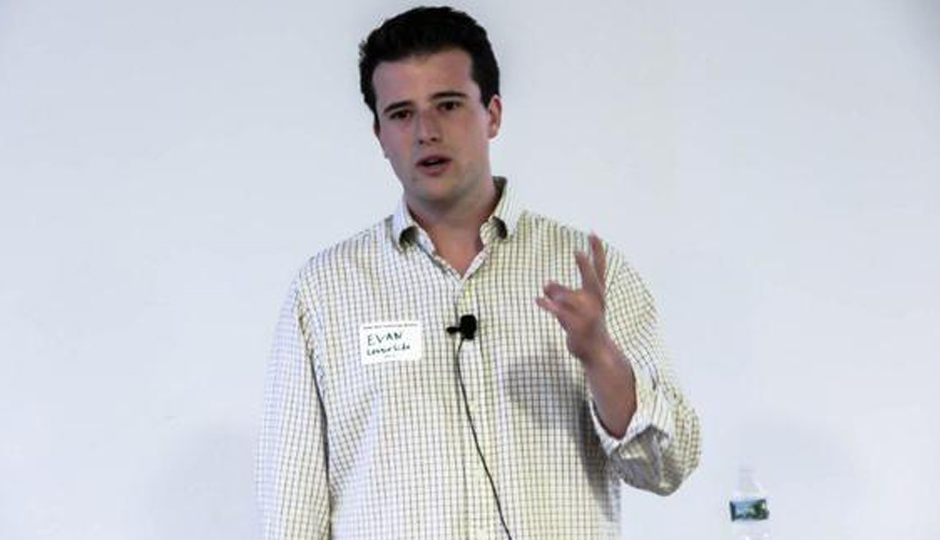Sixers Rely on Army of 22-Year-Olds for Marketing
If you think techies and sports don’t mix, you’re mistaken.
I learned that first-hand at Wednesday’s Philly New Tech Meetup which showcased innovations in sports and technology.
Here are three things I learned:
1. Marketing the Sixers Takes an Army of 20-Somethings
Tim McDermot has a front-row seat to one of the most fascinating turnaround stories in all of sports. Or one of the most colossal failures. We’ll see soon enough.
As chief marketing and innovation officer for the Philadelphia 76ers, he’s tasked with garnering interest in a team that’s basically told fans it has no interest in winning for three consecutive seasons. While he hopes the payoff will be sweet, tanking takes its toll.
“I can’t control the product, the wins and losses,” said McDermot (whose brother Sean was the defensive coordinator for the Philadelphia Eagles and now the Carolina Panthers.) “That’s the hardest thing about being a marketer in professional sports.”
So the team has hired “the largest sales staff in all of sports” which has 180 young people, mostly hungry 20-somethings, said McDermot.
“What they bring to the table is magical,” said McDermot, who says they’ve been instrumental in implementing programs like its 76 Seconds initiative where employees will take a small amount of time to “make a memory” for fans at the game. Think about it, if you catch a foul ball at a baseball game, you’d never forget it. But that’s just not scalable.
So without any prodding, the millennials started buying fans drinks at the bar; escorted them court side to watch warmups; and even some fans to meet Coach Brett Brown after the games. McDermot is hoping that those things will bring people back — even if the team is struggling.
“We’re blessed to have so many young kids on our team,” he said. “If you empower them, they’re amazing.”
2. Will This Safety Program Be As Common as a Helmet?
Michael Buono has been coaching youth sports for years, and like many parents and volunteers, he has no medical training. But he’s still the first one to help a child if they get injured on the field. Does the child have any pre-existing conditions? Are they diabetic? Asthmatic? Who’s to know.
So he developed SafetyTag, a program that creates player safety files for each child, displaying their unique health conditions. Why is little Johnny gasping for air? Peanut allergy? Asthma? The coach can know in seconds by looking at Johnny’s SafetyTag file — which says that his inhaler is in his blue backpack.
Buono said that the program is Health Insurance Portability and Accountability Act compliant (likely because the parents fill in the information themselves and medical professionals aren’t the ones sharing and using it.) With 26 million kids playing youth sports, he sees a big market.
“We’re hoping leagues mandate it in the future,” said Buono, “just like a cup and a mouthpiece.”
3. This Guy Wants to Change How Amateur Teams Generate Ad Revenue
Perhaps the only time people aren’t locked to their cell phones is when they’re watching their children play organized sports. Evan Brandoff noticed as much while volunteering at an inner-city Detroit basketball league, where he was hard-pressed to see a fan not paying attention. So that gave him an idea: Why not optimize the way leagues and teams find advertisers? There’s an engaged audience waiting for them.
So he created LeagueSide, which attempts to make it easy for teams and leagues to generate revenue through advertisements. Maybe it’s the local pizza shop ad on the back of a little league jersey, or maybe it’s a larger corporate sponsor.
“Brand recall at a youth sporting event is 84 percent, but brand recall at a pro game is 24 percent,” he said. “It’s extremely effective marketing.”
If Manchester United can have ads on their jerseys, then so can American kids. My guess is that many parents don’t want big corporate sponsors, but would enjoy seeing local businesses getting a unique advertising opportunity.





